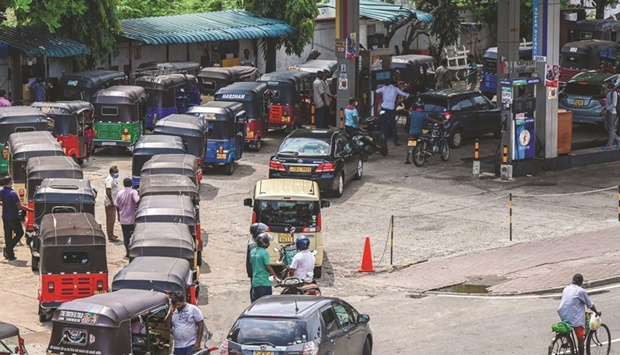A strike by owners of fuel tankers over the weekend renewed Sri Lanka’s long queues for diesel and petrol yesterday as pumps ran dry, compounding the island nation’s economic and energy crisis.
Sri Lanka is in the grip of a pandemic-spurred economic freefall, the worst since independence from Britain in 1948, which has led to shortages of food and other essentials.
The lack of fuel has been an especially large sticking point for the government, as petrol prices have increased by 90% while diesel — commonly used for public transport — has gone up by 138%.
Fuel woes eased slightly last week as supplies arrived under a $500mn credit line from India.
But the salve proved temporary as fuel tanker operators have been on strike since late Saturday, demanding an increase to their prices to ferry the petrol across the country.
Energy minister Kanchana Wijesekera said yesterday he needed at least three more days to restore the supplies of petrol and diesel.
“I appeal to the motorists to bear with us for three more days,” he told reporters in Colombo, adding that the government was trying to hire other mobile container owners not affiliated with the protest.
According to Wijesekera, the union representing tanker operators was demanding a 115% increase in fees, outstripping an offer of 95% more from state-owned Ceylon Petroleum Corporation (CPC).
“We are willing to increase, but not by as much as the tanker operators are demanding,” he said. “If we give in, the CPC will go bankrupt.”
But the operators say running costs are up due to diesel prices being raised 138%, while insurance, spare parts and wages have spiked due to the sharp depreciation of Sri Lanka’s currency.
The rupee has dropped by more than 40% against the dollar since March.

Motorists queue up to buy fuel at a Ceylon Petroleum Corporation fuel station in Colombo yesterday.
